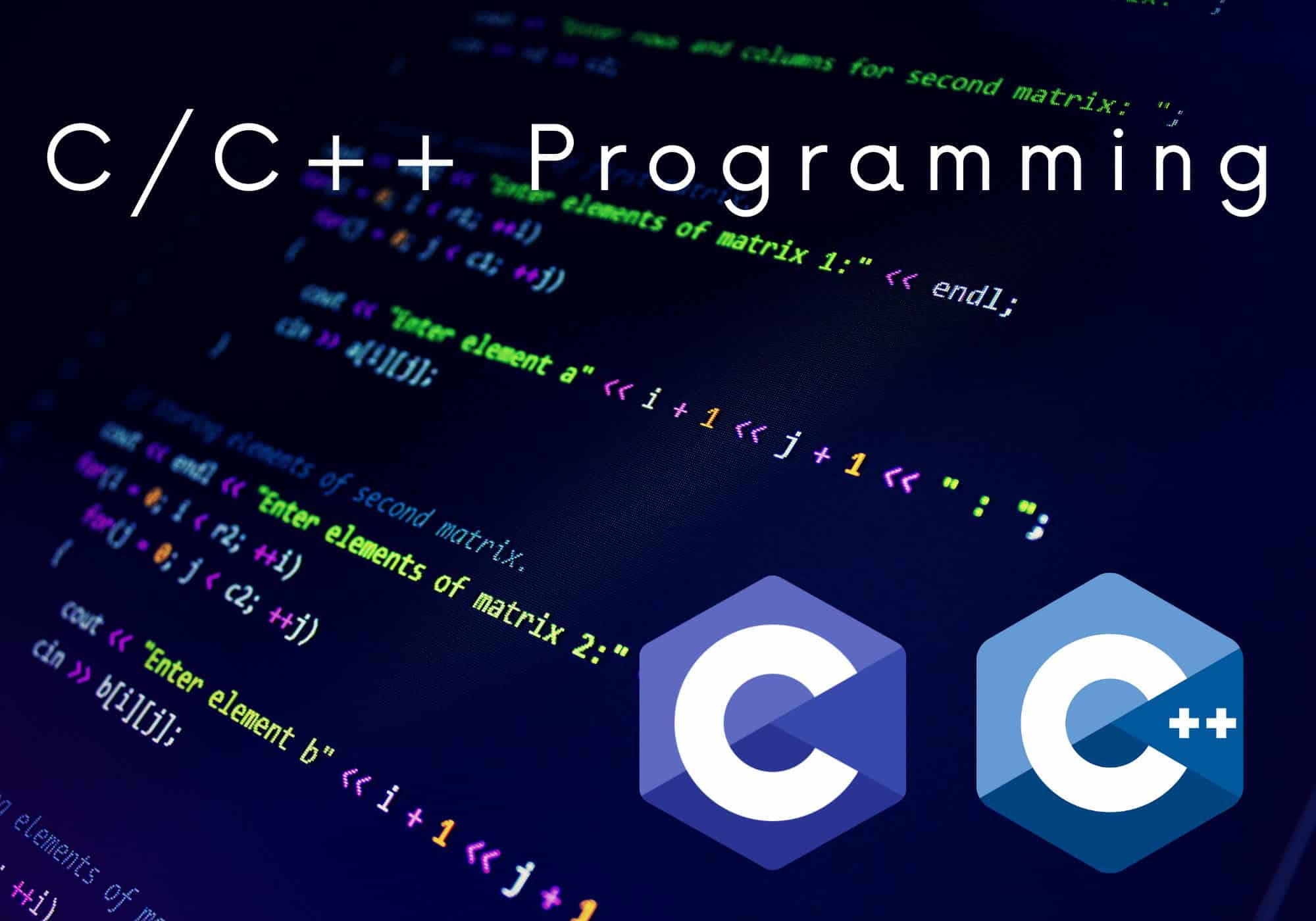Rust vs. C++ is a fairly popular topic of discussion because they compete in the same realm of system-level development languages. They also have a steep learning curve, which means problems for beginners who are choosing a programming language.
Despite the same scope, C++ has a stronger foundation in terms of community, frameworks, and general information about its principles. Rust language is new to the programming world and many developers still need to learn it.
If you look at these languages from a very technical point of view, they have some things in common in terms of syntax and code complexity. However, even though they are similar, C++ and Rust performance have significant differences that will likely help you decide which one to study. So let’s start comparing Rust vs. C++ in more detail.
What Is C++ Comparative Advantage?

C++ is a general-purpose language. However, because of the complexity of its syntax rules and general difficulty in use, it mainly dominates in areas where high speed, singularity, and a more thorough approach to device operation are required.
As a descendant of C and with its compiled code, C++ is superior to languages such as Python, C#, or any other interpreted languages. When comparing, Rust performance is often cited as being faster than C++ because of its unique components. More often than not, their speed depends on the program being developed, the compiler, and the quality of the code. Thus, if your product written in C++ performs badly, poor code may be the culprit.
C++ Capabilities
In terms of the Rust vs. C++ comparison, C++ is a programming language capable of creating operating systems like Microsoft Windows. In addition to that, it is a part of the most revolutionary video games, which also makes it the leading language for game development. Even the Unity software development framework, which allows you to create games using C#, is written in C++. A more advanced option would be to use Unreal Engine, which consists of pure C++ and is generally more advanced.
To guarantee speed, C++ does not offer automatic garbage collectors. Despite this convenience, such a feature very often slows down products written in programming languages like C#.
What Is Rust Comparative Advantage?

In the eyes of an expert, Rust is a more innovative system-level programming language. Its creators designed this language with an emphasis on security. It is worth noting that they clearly aimed to outperform C++ by offering more secure memory management while maintaining their speed advantage.
When discussing Rust and C++, it is clear that using the former leads to the production of faster programs. But what is Rust used for? It can be applied to develop device drivers, embedded systems, operating systems, games, web applications, and more.
The language continuously supports projects aimed at high security and consistency. The very first thing you should know about Rust is its amazing speed. Yes, programs created with this language will surprise you with their speed, but not every program will have the necessary components to unlock the full potential of Rust.
After all, programming languages only provide you with the tools to develop fast software: you’ll have to do the nailing yourself. Rust catches bugs in the code before developers even begin testing their applications. For example, Rust can help you create programs that verify the correctness and validity of your code at run time.
Safe For Memory
When choosing between Rust versus C++, it is important to mention memory safety. It is standard for system-level languages to lack automatic memory management, since features such as garbage collectors can compromise performance. So, C++ has everything but security for memory to maintain its speed.
Rust is safe for memory, but you shouldn’t expect the same situation with garbage collectors as with C#. Sometimes, it seems like Rust doesn’t follow a manual memory management scheme because of the built-in functions. Whereas C++ requires developers to perform completely this type of management, Rust offers many features to make these procedures simpler.
Available Rust Frameworks
When it comes to Rust vs. C++ comparison, even if the C++ ecosystem is more established, Rust also offers some frameworks. Mastering this language means getting to know frameworks that offer functionality, security, and modernness.
Rocket is a web framework forRust developers who value security, speed, and flexibility. Thus, if you want to use this programming language for web development purposes, this framework is perfect for you.
Actix is a powerful Rust framework that offers many features, including responsiveness, extensibility, type safety, and other lightweight components. Thanks to its smart design, the framework neither sacrifices speed nor adds unnecessary elements for the sake of high performance.
Nickel is a Rust framework with clear validation rules and a user-friendly interface for developing and managing information flow systems.
The Yew framework is used to develop web applications with Rust. Although the backend would be the obvious choice, some enthusiasts have experimented with using Rust for the frontend. Even though this choice of language for the client side is very rare, developers claim that it is possible.
Technical Comparison: Rust vs. C++ Performance
Why use Rust code instead of C++, when the latter has a stronger community, more frameworks, and has earned a stable place over the years? One argument is Rust’s approach to code safety and correctness.
In languages with dynamic typing, like C++, it’s much easier to miss problems and complexities in your code. Rust can be described as a language with static typing on steroids because its code-checking procedures are stricter than in C++.
For example, Rust compilers check every variable and memory address that the code refers to. Therefore, Rust prevents a high-pressured and rushed work pace, which can lead to undefined behavior. This refers to a situation where multiple threaded processes access the same memory allocations, and there is no synchronization.
Which Projects Are Better Suited For Rust And C++?

Rust code conforms to the four major concepts in programming: procedural, parallel, functional, and OOP. Therefore, Rust is a versatile language that can be applied in many areas. For example:
- Programming client applications and web servers;
- Creating your own operating systems;
- Writing programs and applications to monitor systems and servers;
- Development of general-purpose software;
- Infrastructure creation;
- Writing engines for browsers and games.
C++ is a high-performance language that helps generate road maps in GPS and develop games. It beckons not to lag and gives excellent quality at maximum graphics settings, so bank services could be round the clock, and transfers — instant.
Performance is an important characteristic of any computer game. Counter-Strike, StarCraft, World of Warcraft — all of them appeared a long time ago and were written in C++, as well as the operating systems of Xbox and PlayStation consoles. The same situation is with the kernels of the popular Unreal Engine or Unity, based on which are made a huge number of 3D games, simulators, shooters and strategies.
We can conclude that C++ is used for the following projects:
- Game development and game engines (Unreal Engine, Unity);
- GPU-computing (cryptocurrency, deep learning);
- Development of high-load and high-performance applications.
Wrapping Up
Rust vs. C++ is not an easy comparison at all, as you need to consider many things. If you are looking for a language that is well-supported and rich in frameworks, you should choose C++. In other cases, you might want code security to avoid memory leaks and other undefined behaviors. Thus, you might try experimenting with Rust. If your priority is speed, both Rust and C++ will work for that. However, C++ is still a more popular option.
Source: Rust Vs. C++: an Utmost Comparison of Performance, Speed and Safety
Never Miss an Update
Get notified when we publish new analysis on HFT, market microstructure, and electronic trading infrastructure. No spam.
Subscribe by EmailI help financial institutions architect high-frequency trading systems that are fast, stable, and profitable.
I have operated on both the Buy Side and Sell Side, spanning traditional asset classes and the fragmented, 24/7 world of Digital Assets.
I lead technical teams to optimize low-latency infrastructure and execution quality. I understand the friction between quantitative research and software engineering, and I know how to resolve it.
Core Competencies:
▬ Strategic Architecture: Aligning trading platforms with P&L objectives.
▬ Microstructure Analytics: Founder of VisualHFT; expert in L1/L2/LOB data visualization.
▬ System Governance: Establishing "Zero-Failover" protocols and compliant frameworks for regulated environments.
I am the author of the industry reference "C++ High Performance for Financial Systems".
Today, I advise leadership teams on how to turn their trading technology into a competitive advantage.
Key Expertise:
▬ Electronic Trading Architecture (Equities, FX, Derivatives, Crypto)
▬ Low Latency Strategy & C++ Optimization | .NET & C# ultra low latency environments.
▬ Execution Quality & Microstructure Analytics
If my profile fits what your team is working on, you can connect through the proper channel.



